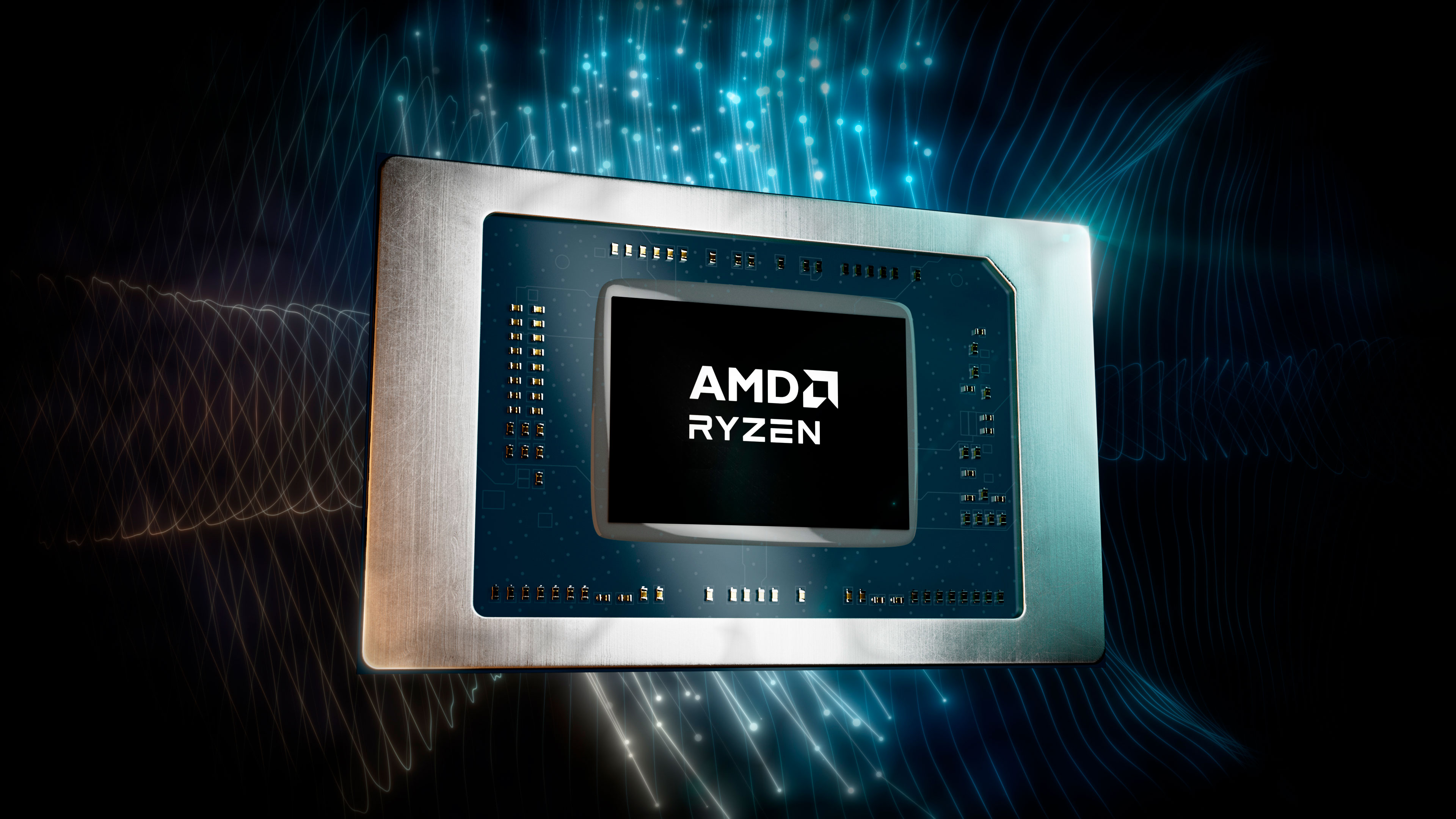
AMD's two new Ryzen AI 9 HX 300 processors are the only Zen 5-based mobile chips on the market so far. But that could change soon; Benchleaks on X (Twitter) has discovered the first non-Ryzen 9 AI-series CPU from AMD in the Geekbench browser, featuring the Ryzen AI 7 Pro 160 with just eight Zen 5/Zen5c cores.
The new CPU is undoubtedly one of AMD's upcoming lower-end SKUs that will join the CPU manufacturer's lineup of outgoing Ryzen AI 300 series processors. Adding the 'Pro' nomenclature confirms that AMD will make professional/business variants of the AI 300 series, just as it has done with previous CPU generations. The 100 series nomenclature is a naming scheme AMD officially changed at the last minute before the Ryzen AI 300 series debut. As a result, we can expect this new chip to be changed to 300 series nomenclature when it hits the market.
[GB6 CPU] Unknown CPUCPU: AMD Ryzen AI 7 PRO 160 w/ Radeon 870M (8C 16T)Min/Max/Avg: 3909/4248/4238 MHzCodename: Strix PointCPUID: B20F40 (AuthenticAMD)Single: 2514Multi: 11772https://t.co/X9endd10p2July 5, 2024
According to the Geekbench spec sheet, the Ryzen AI 7 Pro 160 sports eight cores in two clusters, one holding three cores and the other five cores. The first cluster houses Zen 5 cores, while the other houses more power-efficient Zen 5c cores. The chip also comes with Radeon 870M integrated graphics, a new mid-range RDNA 3.5-based iGPU that will compliment the flagship Radeon 890M launched with the Ryzen 9-based AI 300 series variants.
One strange addition is the L3 cache capacity, which comes in at just 8MB. This could be an error on Geekbench's part, but if this information is correct, it represents a significant reduction in L3 cache compared to previous generation parts which had 16MB (desktop variants have up to 32MB).
Geekbench performance is within striking distance of the previous generation Ryzen 9 8945HS, which also comes with eight cores. The 'AI Pro 160' chip yielded a single-core result of 2,514 points and a multi-core score of 11,772 points, respectively. The Ryzen 9 8945HS yielded a slightly slower score of 2,387 points and 11,654 points, respectively, in the single and multi-core Geekbench benchmarks. This represents a 5% advantage and 1% advantage in the single -and multi-core results in favor of the Ryzen 7 AI Pro 160.
Assuming these benchmark results showcase the real-world performance of the new AI pro 160 chip, these results provide evidence that AMD's Zen 5-based Ryzen 7 parts will perform very similarly to its previous generation Ryzen 9 chips. Users will be able to opt for a Ryzen AI 300 Ryzen 7 part (when they come out) and know they will get previous-generation Ryzen 9 performance.
Compared to Intel, the new Ryzen 7 part outperforms Intel's Core Ultra 9 185H but doesn't have enough juice to outperform Intel's more performance-oriented mobile processors (based on Raptor Lake Refresh), such as the Core i5-14500HX and Core i7-14700H. But these Raptor Lake parts are much more inefficient than AMD's Zen 5 processors, so it isn't an all-out win for Intel. AMD's Ryzen AI 300 series CPUs (including the new Ryzen 7 part) all target a balance of power efficiency and performance to work best inside thin and light laptops. By contrast, Intel's Raptor Lake Refresh parts are mainly aimed at high-performance laptops, such as big bulky gaming laptops. The best comparison is from the Core Ultra 9 185H, Intel's closest competitor (until Lunar Lake debuts) to the new Ryzen AI 300 series.
As previously stated, we expect this Ryzen AI 7 Pro 160 processor to arrive in the future but rebranded to AMD's official 300 naming scheme, which the company switched to right before Computex 2024. With eight core Ryzen 7 Pro processors on the horizon, we can expect mainstream Ryzen 7 parts, as well as Ryzen 5 and Ryzen 3 parts, to come in the not-too-distant future.







